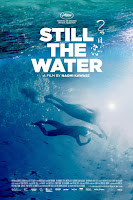the traveler's resource guide to festivals & films
a FestivalTravelNetwork.com site
part of Insider Media llc.
Film and the Arts
For 25 Years, Joe Hurley has Produced His All-Star Irish Rock Revue With NY’s Finest
- Details
- Parent Category: Film and the Arts
- Category: Reviews
- Published on Wednesday, 22 March 2023 14:16
- Written by Bruce Alexander & Brad Balfour

Photo by Bruce Alexander
Joe Hurley’s 25th Anniversary All-Star Irish Rock Revue
Friday, March 17, 2023
6-8 pm
City Winery
25 11th Ave. (at 15th St.)
New York, NY
646-751-6033
A St. Pat’s Day celebration took place in City Winery’s main space with veteran rocker and producer Joe Hurley and his band, Rogue’s March. They were joined by what seemed like a cast of thousands of NYC Stars coming together to sing The Great Irish Songbook.
Founded in 2008 by Michael Dorf, City Winery is more than a music venue — it is a winery, restaurant, fine wine bar and private event space. Recently re-located to Pier 57 on the Hudson River in New York, it has excellent views of the Little Island NYC, is near the Whitney Museum, Chelsea Market, and the High Line. The location delivers a unique culinary and cultural experience for urban wine enthusiasts passionate about music. And as a venue for events—a place for happy hours, family reunions, and birthday parties. — it hosts live events most nights from concerts to comedy shows as well as including Joe Hurley with his All-Star Irish Rock Revue.
The dapper Hurley led his all-star cast of singers and musicians in performing a selection of classic Irish songs — both traditional and those by contemporary composers. Performers included NY1 news reporter Roger Clark, who let loose with a rocking stage presence and led the grand finale rendition of Van Morrison’s “Gloria.” Another great New York rocker, Willie Nile, performed the late poet/performer Jim Carroll’s “The People That Died” — a song that should not be forgotten. Mike Fortunate did a killer version of Dexy’s Midnight Runners’ “Come On Eileen.”
Sheryl Marshall, whose husband was telling stories of Soho New York in the ’70s while his wife performed, provided a soulful presence to the musical festivities. Guitarist Mark Bosch — once a member of Bowie-produced Ian Hunter’s band — kept trying to edge his way in during Clark’s unstoppable punk dancing stage bombast — but the green-clad rocker held his own.
UK comic hero, the bald-headed Stephen Frost, R&B singer Carlton Smith, Austrian exotic dancer Anna Copa Cabanna, accordion player Kenny Margolis and former Meatloaf singer Ellen Foley were among the many hitting the stage. All were keeping it real for the entire show –especially legendary NYC singer Laura Cantrell. And the list goes on — Sage Leopoid of Panik Flower, Tiffany Lyons of Slyboots, James Maddock and Ricky Byrd, the guitarist from Joan Jett’s band. All jammed it up with fine renditions of songs from U2 to Thin Lizzy and The Pogues and many more.
It was a packed house with everyone dancing and singing in celebration of Saint Patty’s Day. And there was no better MC and singer than Joe Hurley to make it all happen for what became a three-hour long extravaganza.
Film Series Review—“Jeanne Moreau, Cinéaste” at Film Forum
- Details
- Parent Category: Film and the Arts
- Category: Reviews
- Published on Friday, 17 March 2023 22:35
- Written by Kevin Filipski
 |
| Lumière |
 |
| The Adolescent |
 |
| Lillian Gish |
NYC Theater Review—“The Sign in Sidney Brustein’s Window” with Oscar Isaac and Rachel Brosnahan at BAM
- Details
- Parent Category: Film and the Arts
- Category: Reviews
- Published on Tuesday, 14 March 2023 14:34
- Written by Kevin Filipski
.png) |
| Rachel Brosnahan and Oscar Isaac in The Sign in Sidney Brustein's Window (photo: Julieta Cervantes) |
March '23 Digital Week I
- Details
- Parent Category: Film and the Arts
- Category: Reviews
- Published on Wednesday, 08 March 2023 20:29
- Written by Kevin Filipski
More Articles...
Newsletter Sign Up














